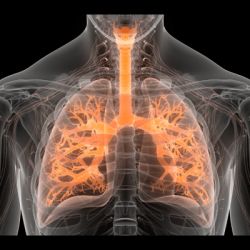Researchers in the Netherlands studying thousands of healthy adults have found a connection between very early stages of brain and heart disease, according to a study presented on Wednesday, 2 December, at the annual meeting of the Radiological Society of North America. The finding provides more insight into the heart-brain connection, which is important as heart and brain diseases are growing problems in ageing populations.
"We know that myocardial infarction, heart failure and atrial fibrillation are associated with an increased risk of stroke and dementia," says Hazel Zonneveld, MD, MSc, from the Department of Epidemiology and Radiology at Erasmus University Medical Center in Rotterdam. "Our study investigates whether the heart-brain link is present at an earlier stage of disease."
Dr. Zonneveld and colleagues analysed data from 2,432 participants in the Rotterdam Study (57.4 percent women, mean age 56.6 years), a prospective, population-based study designed to investigate chronic diseases in Rotterdam's ageing population. Participants with overt heart disease, dementia and brain infarcts (strokes) were excluded from the analysis.
Participants underwent brain MRI, which included the use of an advanced technique called diffusion tensor imaging (DTI), and blood testing to measure levels of N-terminal pro b-type natriuretic peptide (NT-proBNP) — a marker of heart disease.
"NT-proBNP is released into the bloodstream in response to myocardial wall stress," Dr. Zonneveld explained. "Studies have demonstrated that NT-proBNP provides information on cardiac dysfunction even in the absence of overt heart disease."
Dr. Zonneveld's team evaluated the brain MRI results for markers of early brain disease, including a loss of brain volume, microstructural changes and white matter lesions, which indicate areas of cells that have been damaged by injury or disease.
The results of DTI showed that participants with higher NT-proBNP levels had worse microstructural organization within the white matter. Further analysis revealed that higher NT-proBNP levels were also associated with smaller total brain volume and larger white matter lesion volume. The brain volume loss was mainly in the grey matter, said Dr. Zonneveld.
The study is the first to demonstrate an association between NT-proBNP and the microstructure of the brain, she added.
Iphigenia Papaioanou
Editorial Project Director, HealthManagement.org
Source and image credit: RSNA
"We know that myocardial infarction, heart failure and atrial fibrillation are associated with an increased risk of stroke and dementia," says Hazel Zonneveld, MD, MSc, from the Department of Epidemiology and Radiology at Erasmus University Medical Center in Rotterdam. "Our study investigates whether the heart-brain link is present at an earlier stage of disease."
Dr. Zonneveld and colleagues analysed data from 2,432 participants in the Rotterdam Study (57.4 percent women, mean age 56.6 years), a prospective, population-based study designed to investigate chronic diseases in Rotterdam's ageing population. Participants with overt heart disease, dementia and brain infarcts (strokes) were excluded from the analysis.
Participants underwent brain MRI, which included the use of an advanced technique called diffusion tensor imaging (DTI), and blood testing to measure levels of N-terminal pro b-type natriuretic peptide (NT-proBNP) — a marker of heart disease.
"NT-proBNP is released into the bloodstream in response to myocardial wall stress," Dr. Zonneveld explained. "Studies have demonstrated that NT-proBNP provides information on cardiac dysfunction even in the absence of overt heart disease."
Dr. Zonneveld's team evaluated the brain MRI results for markers of early brain disease, including a loss of brain volume, microstructural changes and white matter lesions, which indicate areas of cells that have been damaged by injury or disease.
The results of DTI showed that participants with higher NT-proBNP levels had worse microstructural organization within the white matter. Further analysis revealed that higher NT-proBNP levels were also associated with smaller total brain volume and larger white matter lesion volume. The brain volume loss was mainly in the grey matter, said Dr. Zonneveld.
The study is the first to demonstrate an association between NT-proBNP and the microstructure of the brain, she added.
Iphigenia Papaioanou
Editorial Project Director, HealthManagement.org
Source and image credit: RSNA
Latest Articles
healthmanagement, brain, stroke, dementia, #RSNA15, RSNA 2015, heart disease, ageing
Researchers in the Netherlands studying thousands of healthy adults have found a connection between very early stages of brain and heart disease, according...



























